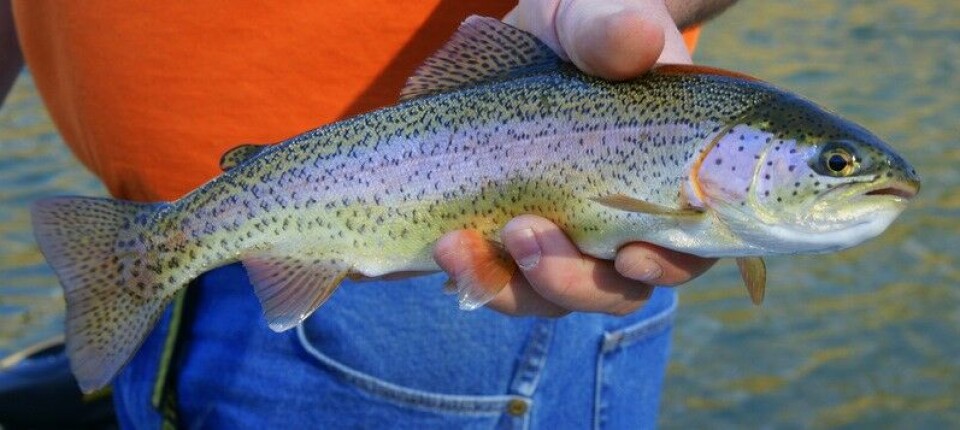
Cooke turns to trout to keep Washington farms working
Canadian-owned salmon farmer Cooke Aquaculture is pinning its hopes on trout to continue farming in Washington state in the north west of the United States.
The company has applied to switch production to the native fish following last year’s decision by legislators to ban open net pen farming of the non-native Atlantic salmon from 2022.
Cooke is already winding down its salmon operations but hopes some or all of its sites can be transitioned to rainbow/steelhead trout.

Transitioning to steelhead
“We have applied to the state to farm steelhead in Washington state. Our objective is to continue in Washington state, to continue to keep our people employed,” said spokesman Joel Richardson.
“The permitting is species specific and we’re working with the state now on transitioning our Atlantic salmon fish farming to steelhead. That would take place as the cycles of our Atlantic salmon farming wind down.
“The Department of Ecology re-issued our permits yesterday, and they had attached some additional conditions for Atlantic salmon. We have about 800,000 Atlantic salmon in the water now, at three different farming sites, and that’s down from about three and a half million across the state when we were at peak production.
“We haven’t re-stocked, so as we harvest those sites and those pens become vacant. From the time that those sites are harvested and vacated we would fallow them for a time and then transition towards farming steelhead.”
Cooke is not growing new smolts for restocking but expects it will be able to use its hatchery for trout if it gets its permissions.
“We have having discussions with the state for the last couple of months about all of our facilities, about how we would transition our sea sites and hatchery facilities and other assets over to farming steelhead,” said Richardson.
“We would be using the same type of species that the state already currently stocks. They’re native.
“This would be an opportunity to keep our people employed. The farms that we use have been in operation for over 30 years in Washington state, so aquaculture has a long history in the state.”
Additional resources
Richardson said Cooke had already invested significantly in upgrading pens at the sites, which it acquired in 2017, and would invest additional resources into our pens and equipment if it was allowed to farm trout.
“We haven’t determined where steelhead would be farmed. That’s all going to be done under the process we’re going through with the state,” he added.
“At this point we’ve simply applied to the state to farm the rainbow trout, so a decision in principle is still pending.
‘A win-win for the state’
“It’s a win-win for the state because it keeps people employed in rural communities and keeps our investments in the state active, along with reinvestment, and is done on a sustainable basis under the state’s regulation in accordance with all the regulatory departments.
“Throughout this process, even with dealing with the ban on Atlantic salmon, we had stated that we would explore every option and this opportunity to farm rainbow trout has proven to us to be the most viable and sustainable option.
“We’ve made every effort possible, and we will continue to take every opportunity to work with the state and local communities and the tribes to partner where possible, and to keep local residents employed and farming sustainably.”























































